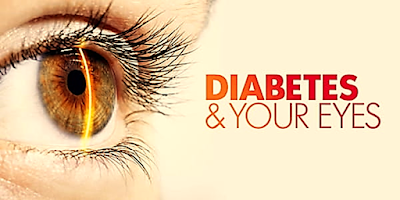Diabetes and Eye Disease: What is Retinopathy and How is it Treated?
Diabetes doesn't just affect your blood sugar levels; it can also seriously harm your eyes. In fact, diabetes is a leading cause of vision loss and blindness. That's why, if you have diabetes, taking care of your eyes is absolutely crucial.
How Does Diabetes Affect Your Eyes?
Diabetes can damage the blood vessels throughout your body, and this includes the tiny blood vessels in your eyes. This damage can lead to a condition called Diabetic Retinopathy.
What is Diabetic Retinopathy?
Diabetic retinopathy occurs when the blood vessels in the back of your eye (the retina) become damaged due to diabetes. This can cause your vision to become blurry, and in severe cases, you can even lose your sight. There are two main types of diabetic retinopathy: non-proliferative and proliferative. Non-proliferative refers to the earlier stages, while proliferative is a more advanced form. It progresses through four stages:
- Stage 1: Mild Non-proliferative Diabetic Retinopathy: This is the earliest stage. Small swellings occur in the blood vessels of the retina. These swollen areas are called microaneurysms.
- Stage 2: Moderate Non-proliferative Diabetic Retinopathy: At this stage, more blood vessels swell and may block blood flow in the retina, preventing proper nourishment.
- Stage 3: Severe Non-proliferative Diabetic Retinopathy: During this stage, a significant number of blood vessels in the retina become blocked, reducing blood flow to the area considerably. Deprived of blood, the body starts signaling for new blood vessels to grow in the retina.
- Stage 4: Proliferative Diabetic Retinopathy: This is the advanced stage of the disease, where new blood vessels begin to grow in the retina. Because these new vessels are often fragile, they are prone to leaking fluid and blood. This can lead to various vision problems, including blurry vision, decreased vision, and even blindness.
What are the Symptoms of Diabetic Retinopathy?
In the early stages of diabetic retinopathy, you might not notice any symptoms at all. But as it progresses, you may experience:
- Blurry vision
- Difficulty seeing at night
- Seeing spots or floaters in your vision
- Vision loss
Eye Exams for People with Diabetes
If you have diabetes, getting regular eye exams is essential for maintaining your eye health. Your eye doctor will dilate your pupils to examine your retina and blood vessels at the back of your eye. They will also check your vision. The frequency of these exams will depend on the type of diabetes you have and the health of your eyes, but generally, annual comprehensive eye exams are recommended, and more frequent exams may be necessary if signs of retinopathy are present.
Treatment for Diabetic Retinopathy
Treatment options for diabetic retinopathy include:
- Monitoring: In the early stages, regular check-ups might be all that's needed.
- Injections: Injections of medications (such as anti-VEGF drugs) into the eye can help to stop the growth of abnormal blood vessels and reduce fluid buildup.
- Laser Treatment: Laser surgery, called photocoagulation, can help to seal leaking blood vessels and prevent their growth.
- Vitrectomy: This procedure involves making a small incision in the eye to remove blood and scar tissue from the vitreous (the gel-like substance in the middle of the eye) that may be pulling on the retina.
Treatment for Diabetic Macular Edema (DME)
Diabetic macular edema (DME) is a complication of diabetic retinopathy where swelling occurs in the macula (the central part of the retina responsible for sharp, central vision). Treatment for DME can include injections of medications into the eye, laser therapy, or in some cases, vitrectomy.
Protecting Your Eyes
If you have diabetes, there are several things you can do to protect your eyes:
- Control your blood sugar levels: Keeping your blood sugar within the target range is the most important step in preventing and slowing down diabetic retinopathy.
- Get regular eye exams: Follow your eye doctor's recommendations for how often you should have your eyes checked.
- Eat a healthy diet: A balanced diet can help manage your diabetes and overall health.
- Exercise regularly: Regular physical activity can also help control blood sugar levels.
- Don't smoke: Smoking can worsen diabetic retinopathy.
Diabetes is a serious condition that can harm your eyes. But by taking good care of your overall health and getting regular eye exams, you can significantly reduce your risk of vision loss and protect your sight.














0 comments:
Post a Comment